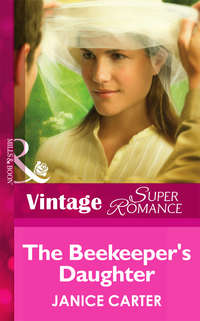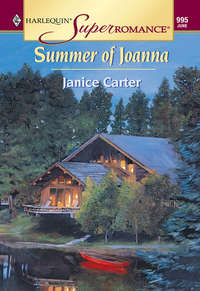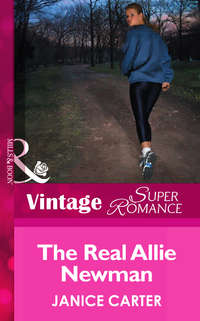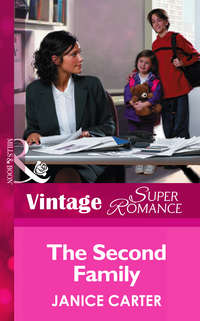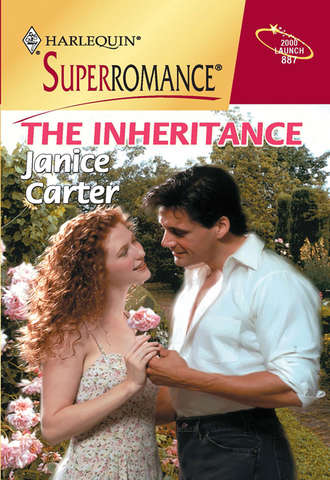
Полная версия
The Inheritance
“I see you’ve already managed to find the best diner in Plainsville.”
Roslyn whirled to her left. Jack Jensen was standing inches from her shoulder and she brushed against him as she turned. “You startled me,” she gasped.
“Sorry, I should have tapped you on the shoulder or something. Either way, guess you would’ve jumped.”
“I—I was just looking at that statue,” she said, pointing to the roundabout.
“Oh. I figured you’d just had a bite to eat at Laverne’s place.” He craned his neck behind him.
Roslyn noticed for the first time the diner with the sign Laverne’s Coffee Shop propped against the plate glass window.
“Don’t be fooled by the name,” he added. “It’s not one of those trendy coffeehouses where you pay exorbitant prices for designer coffees and monster-size pastries that have no taste.”
Several corners in downtown Chicago popped into Roslyn’s mind. “Actually,” she said, “I was looking for a place to eat when the guy on the horse caught my eye. Right out of Main Street, U.S.A., isn’t it?”
He looked down at her, his eyes narrowing slightly. “The guy represents every pioneer and settler who had the guts to leave a safe home behind and head out for the unknown.”
Roslyn felt her face flush.
“And the hawk,” he continued, “well, anyone who knows their geography knows that Iowa is the Hawkeye State. Named after one of our famous Native Americans.” He waited a beat, then leaned into her face to say, “So much for the history lesson. Care for some lunch?”
“Great,” said Roslyn. “Maybe if I put some food into my mouth, I won’t be able to fit my second foot in.”
He smiled, stepping aside to let her go first. But then she heard him mutter. “Geez, I forgot I’m supposed to be meeting Lenny.”
“At Laverne’s?”
“Nah. This place is too old-fashioned for Lenny. He was going to wait for me near the roundabout.” Jack moved toward the edge of the curb and scanned the parkette surrounding the bronze statue.
His eyes crinkled against the sun and he pushed the tip of his baseball cap back off his forehead to get a better look. It was Roslyn’s first chance to get a better look, too. At Jack Jensen. Tall and lean rather than thin, he obviously kept in shape. His profile had strong lines without sharpness. Ordinary features that merged to form an attractive, though very un-Hollywood face. For some reason, that pleased her.
His head swiveled unexpectedly, catching her mid-stare, and Roslyn knew her face was red. “A dead giveaway,” he murmured softly.
“Say again?”
“Your skin tones. I bet you can’t ever tell a lie convincingly,” he teased, adding quickly, “Not that I’m suggesting you ever would!”
She grinned, just as Lenny’s shout got his attention.
“Damn!” he whispered, pulling his eyes from hers and staring down the street. Lenny was running toward them.
Lenny pulled up right in front of Jack. “Thought you were leavin’ me behind again,” he began, then stopped, catching sight of Roslyn. “Oh, sorry.” He looked from one to the other.
“I just bumped into Roslyn here,” explained Jack, “and, well, I was thinking of getting a bite to eat with her at Laverne’s.”
Lenny frowned. “Here? I thought we were going to Murphy’s!”
Jack stared silently at his nephew.
Willing him to shut up? Roslyn wondered. “You two go ahead with your plans,” she said. “Besides, I’m sure you have a lot of work to do today.”
“Yeah,” said Lenny, brightening at the reminder. “Aren’t we supposed to clear some brush for old man Watson?”
Jack flipped the cap off his head and ran his fingers through his hair. Little spikes stood on end, moistened by perspiration. “We can do that any day,” he said.
“Not with me, ’cause next week final exams are starting and I won’t be available.”
Jack sighed loudly and turned to Roslyn. “Look,” he began.
She held up a palm. “Another time. Just recommend something at Laverne’s for me.”
He gave a faint smile. “Anything. For lunch, maybe the club sandwich on whole wheat.”
“Sounds good,” she said, keeping her eyes on Jack’s face but catching the scowl on Lenny’s at the same time.
“Okay then,” he said, still playing with the cap in his hands.
There was a moment’s pause which Lenny broke. “The meter musta run out by now,” he grumbled.
Jack shot Lenny a look that silenced him. Roslyn was beginning to feel uncomfortable. “Maybe you could pop around sometime tomorrow,” she suggested. “I think we need to talk about…well, things.”
“What time?” Jack asked.
She shrugged. “Sophie’s coming to help clean and go through some things with me. Maybe around eleven?”
“Good. Eleven.” He nodded enthusiastically, then put the cap back onto his head. “Okay, then. Tomorrow at eleven.”
“Geez, Uncle Jack,” Lenny interjected. “You’ve already said that a hundred times.”
Jack ignored his nephew and held out his right hand. Surprised by the sudden gesture, Roslyn placed hers in his.
“That’s good. That we’re going to talk, I mean,” Jack murmured, staring down into Roslyn’s eyes and clasping her hand gently in his.
Lenny sputtered something. Finally, Jack released her hand and, with Lenny tugging at his right elbow, began to move off down the street.
“Good grief,” mumbled Roslyn. “What a pair.” But her hand was still tingling when she placed it on the door to push it open.
CHAPTER FOUR
ROSLYN COULDN’T remember the last time she’d felt so restless. Or could this gnawing sensation be loneliness?
No, she thought, pushing the suggestion away. More like boredom from midweek in Plainsville, Iowa.
She rose from the wicker rocking chair she’d found in the sunroom off the kitchen and prowled back and forth along the veranda. April was far too soon to be sitting outdoors in the evening, but the silence inside the house was pressing. She wrapped the afghan tighter around her, reluctant to head back inside for her jacket. Once there, she knew she’d simply turn out the lights and go to bed. It was only nine o’clock and she couldn’t recall the last time she’d retired so early. Maybe the day after her mother’s funeral a year ago, when sleep had been a welcome escape.
Her mother’s pretty face flashed before her. Lucille Dutton Baines. Roslyn sighed, trying to conjure up a picture of her mother in which she didn’t have a defeated look. If Roslyn went back to the years before her parents divorced, she could almost envision a mother who smiled and laughed. Roslyn had never learned all the reasons for the breakup. She remembered a lot of arguments about money. As the years passed, other issues cropped up, and her father began to stay out at night.
Moving into Grandma and Grandpa Dutton’s row house had ruled out any chance of reconciliation. Roslyn shivered at the very memory of Grandma Dutton’s hawklike face and thin, brittle body. Not the kind of body that welcomed a child’s embrace. Was it any wonder, she asked herself in the center of Ida Mae Petersen’s veranda, that her grandmother had never revealed anything about her family? Would any family want to claim someone like Grandma Dutton?
That sobering question was unlikely to be answered. For here she was, in the very seat of the Petersen family, and anyone who might know the complete story was dead. The image of herself as sole survivor of the Petersen clan made Roslyn feel even worse than she had moments ago. She headed for the door, pausing to take a last look at the garden Jack had shown her that morning.
The Iowa rose was bathed in the dim light from the front hall. If only the plant could speak, she thought. Then she shook her head. You’re losing it, Baines, she said to herself. Next you’ll convince yourself that the bush knows all kinds of secrets.
SOPHIE PURSED HER thin lips together and frowned.
“That rosebush,” she enunciated slowly, obviously irked by Roslyn’s question, “came to Iowa from Denmark more than one hundred and fifty years ago. They call it an antique rose, because it’s from the original stock. Not a hybrid, like most of the ones you get nowadays.” She smiled, her face softening. “Jack told me all that. Anyway, your Aunt Ida’s ancestors carried it with them when they came to America all those years ago. It must have been important to the family even then, because people didn’t have the luxury of taking a lot of stuff with them when they traveled on those little boats all the way across the Atlantic.”
Sophie stopped then, her eyes drifting off in a kind of reverie. Imagining the voyage, Roslyn wondered?
The other woman’s eyes blinked rapidly, then gazed across the kitchen table at Roslyn. “Sorry, I got to thinking about my own folks coming over, but they traveled in a modern boat, of course.” She took a deep breath. “As I was saying, the rose was planted in the family homestead—where we’re sittin’ this minute—and has been looked after by generations of Petersens ever since.”
Roslyn waited for Sophie to continue. “And?” she prompted.
Sophie raised her broad shoulders in reply. “That’s it. You asked what was so special about the rose.”
“So they brought it over from Denmark. I still don’t see why Aunt Ida would have been worried enough about it to will it to me.”
Sophie flashed Roslyn a look that questioned her basic intelligence. “The rose has been just as much a part of family life as any person. Every time any Petersen got married, the bride had to have roses in her bouquet. If a Petersen died when the rose was blooming, the flowers would be placed in the funeral wreaths. Whenever a Petersen moved away from Plainsville, a cutting from the rose would go with them.” She plunked her empty coffee mug down and stared at Roslyn.
“How do you know all this?”
“Oh, your aunt told me many times, over the years. She fussed over that rosebush as if it were her own child.” She closed her eyes for a second, then shook her head sadly. “I suppose it was, too. Poor Ida.”
“Why?”
“She never got to use the rose herself, her dying in January….”
“No roses, then,” Roslyn murmured.
Sophie gave her a sharp look, but went on. “And of course, the dear soul never married.”
“I wonder if my grandmother had a cutting from the rose in her bridal bouquet.”
Sophie raised an eyebrow. “Don’t you know?”
“I know less than you, apparently. I remember a photograph of my grandma and grandpa all dressed up and arm in arm, standing in front of a building. My mother said it was their wedding picture—they got married in a registry office in Chicago, I think. I don’t know if she had a bouquet in her hand or not.”
“Where’s the picture now?”
“Probably in a trunk full of stuff from my mother’s flat. I—I never had the courage to go through it after Mom died. It’s all in storage now.” Roslyn’s voice drifted off.
After a moment’s silence, Sophie announced, “Well, speaking of storage. I guess it’s time we got to cleaning out Miss Ida’s room.”
Roslyn reluctantly followed Sophie along the hall and up the stairs. It was a bright, sunny morning. The skeletal tops of trees behind the house were visible through the transom window on the first landing, and Roslyn wondered what they’d look like in full leaf. Then she caught herself. Trees, silly. They’d look like trees.
“When Miss Ida and her sister were young girls, they shared the big back bedroom,” Sophie said as they turned at the top of the stairs.
“It’s a beautiful bedroom,” she murmured. “If I lived here, that’s the one I’d have.”
“Except you won’t be living here,” Sophie reminded her gently.
Roslyn’s face heated up. She was tempted to say something about not having made a decision yet, but was loath to spoil the easy neutrality that she and Sophie had struck together over morning coffee.
Sophie herself seemed to regret her remark. “Maybe you should move in there for the next couple of nights—just to satisfy your curiosity.”
Roslyn’s smile was faint. “No,” she said. “No point, is there?” She squeezed past Sophie and headed for the master bedroom at the front of the house. On the way, she turned her head to ask, “Why did Aunt Ida move into this bedroom? The other one is so much nicer.”
“After her first stroke she said she wanted to be able to see the rose from her bed. Keep an eye on it, she used to say.” Sophie snorted. “Jack used to think Miss Ida didn’t trust him to give that plant its proper care.”
“Well, she could certainly get a good view of it from her bed,” Roslyn said, standing at the wooden headboard and peering out the bay window.
“Miss Ida was much shorter than you,” said Sophie. “She could only see it if she had a lot of pillows behind her. We tried to move the bed, but even Jack and his brother had a hard time getting it to budge.”
Roslyn glanced down at the double bed. “It’s huge,” she said. “I love the way the headboard comes up so high and then curves back like that.”
“It’s called a sleigh bed,” said Sophie. “Handmade right here in Plainsville.” She lumbered across the room to the mirrored vanity and tall bureau standing next to it. “Might as well start with the drawers,” she said. “Why don’t you take the closet? We may need some help getting this stuff downstairs.”
“Jack will be here about eleven,” said Roslyn. “I’m sure he’d help.”
“Oh?” Sophie’s only response, but Roslyn sensed the woman was waiting for an explanation. “We have to settle some things,” she finally told her.
Sophie cast her a knowing glance, but Roslyn ignored her, opening the closet door. “This is so strange,” she murmured, “to be handling things owned by a person I never even met. It doesn’t seem right.” She stared into the closet. On a shelf above the rack of clothes sat a rectangular wooden box. She pulled it down.
It was a rich mahogany shade, its edges neatly dovetailed and the lid locked with an ornate silver clasp. “How beautiful,” she murmured, running her hand along its smooth, polished surface.
Sophie looked up from the bureau. “Your auntie loved that box. It was always by her side. I think she kept a diary or something in it. After she died, I put it in the closet to keep it safe.”
“Is there a key?”
Sophie’s face was blank. “Yes. I’ve seen it somewhere. Just can’t remember where. Would you rather tackle the back bedroom and leave the closet to me?”
Roslyn was grateful for the suggestion. “Yes, I’d rather do that. Thanks, Sophie.” She replaced the box on the closet shelf, eager to escape from the task that had brought back too many memories of cleaning out her mother’s flat after her death last year.
Although there was now only a double bed in the rear bedroom, Roslyn could see how twin beds might have been tucked into each gabled alcove. And except for the bed, there were two matching sets of everything, all painted white—vanities with attached mirrors, bureaus and, in opposite corners, two identical child-sized rocking chairs. Two scruffy braided rag rugs lay on the hardwood floor.
A perfect bedroom for twin girls, she thought. The gabled alcoves—one jutting out from the rear wall and the other from the side wall—housed small windows trimmed with Swiss eyelet curtains that were no longer crisp and white. Two larger windows between the gables offered spectacular views of the woods and fields behind the house. Roslyn looked out the window closest to the side gable to see the end of the drive and the garage where Jack had parked his truck yesterday.
In spite of the brisk April wind, she opened the window to ventilate the bedroom, then pivoted slowly, deciding where to start. There were two other doors in the room, to the right of the main one. Two walk-in closets for the little princesses? She was beginning to picture a room decorated in pastel accessories and frilly trimmings. Hard to imagine the stern grandmother she’d known growing up in such a room. She bet the closets were jammed with stuffed animals and dolls.
But they yielded only stacks of cardboard boxes. Roslyn began at the top of the pile, expecting to find inside the souvenirs of childhood she’d imagined. Instead, one box after another revealed musty magazines, children’s books and even old calendars. No sign of treasured mementos. Someone had mentioned that her aunt had collected things. If so, Roslyn thought, where were they?
Still, she persevered. Some of the boxes contained carefully wrapped vinyl long-playing records; others, neatly folded newspapers. The contents of the second closet were even less interesting: old cookbooks, recipe cards and envelopes of discount coupons that had expired years ago. But at the bottom of the last box in the closet, turned upside down as if to conceal its discovery even longer, was a cardboard-framed black-and-white photograph of two girls. The little princesses.
One sat in a rocking chair; the other stood behind to the right, with an arm draped lovingly over her sister’s shoulders. They were identical from the tip of their sculpted blond curls to the toes of their shiny patent shoes. Their lacy dresses came to just below the knee. Each girl was holding the stem of a single rose bloom.
Roslyn turned the photo over to ease it out of the cardboard frame. Someone had written, in spidery script, “June Rose and Ida Mae, June 12, 1915, fifth birthday.”
“Find something interesting?”
Roslyn craned her neck. Sophie was standing in the doorway with a tray of cold drinks. Roslyn held out the photograph, which Sophie took after placing the tray onto the vanity.
“Oh, my,” she said, then flipped the picture over to read the inscription. “Aren’t they just the perfect little—”
“Princesses.”
Sophie looked down at Roslyn and grinned. “I’d never have thought of Miss Ida as that, but you sure can see it in this picture. Where’d you find it?”
“At the very bottom of a box. You know, Sophie, it’s obvious that my aunt was a pack rat, saving a ton of useless stuff. But where are all the things from her childhood? I mean, even my mother, who wasn’t at all sentimental, saved some favorite stuffed animals and baby clothes of mine.”
Sophie shook her head, handed the photograph back to Roslyn and sank down onto the edge of the bed. “Miss Ida talked a lot about her family and all the antiques and treasures in this house, but she never once said her sister’s name aloud. I knew from what other people in town told me over the years that there was a twin sister living in Chicago and that there must have been a falling out between the two.”
“Must have been some falling out,” murmured Roslyn, “for her to get rid of the memory of that twin so completely.”
“I guess it’s hard for you to find out all this, seeing as how that twin was your very own grandmother.”
Grandma Dutton’s solemn face appeared in the room. Hard to reconcile that face with one of those little girls, Roslyn thought. And which one would she have been? She peered closely at the photo.
“Trying to decide who’s who?”
Roslyn glanced up at Sophie, whose smile was a mix of humor and sympathy. “Just curious,” she said.
“Well, the writing starts off with June Rose, so maybe she’s the one standing just to the left. Assuming that the order of the names matches the left to right order of the picture.”
“Perhaps, though it hardly matters, does it? They were so identical in looks.”
Sophie pursed her lips. “Maybe it mattered to them,” she said.
Roslyn studied the picture a moment longer, wondering what it might have been like to grow up as a mirror to another person. Would you feel you could never escape that other face? She almost shuddered at the thought.
The rumble of a truck engine broke the silence. “Jack!” Sophie announced, pleasure ringing in her voice. She heaved herself off the bed and grabbed the tray. “We’ll have our snack down in the kitchen,” she said, bustling out the door.
Roslyn stared at the picture in her hand, mesmerized by the dimpled faces smiling so expectantly at the camera. Five years old and so much to look forward to. But something happened to ruin that closeness. What had come between two identical twins to make them virtually renounce each other?
She sighed, pushing herself up from the floor. Coming to Plainsville had definitely raised a lot of questions. Unfortunately, they were questions that seemed destined never to be answered.
JACK WAS comfortable in a kitchen chair, one hand clutching a glass of orange juice and the other reaching for a muffin when Roslyn came into the room. He started to get to his feet, but Roslyn smiled and waved him down.
“Please,” she said, “you make me feel I’m attending a board meeting. And work is still a day or so away.”
He had a sudden picture of her then, in one of those nice-fitting, tailored suits, walking confidently into a room of executives. The image made him realize how far apart Chicago and Plainsville really were. Jack swallowed the lump of muffin in his throat.
“Sophie’s been telling me you two have worked all morning cleaning out closets,” he began, as she sat down in the chair opposite him. “Guess your aunt saved a lot of stuff.”
“Everything but what mattered most, I’m afraid. For some reason, there’s nothing but an old photograph of my grandmother and aunt as five-year-olds. At least, nothing I’ve found so far.”
“I know Miss Ida kept photo albums. I used to see her poring over them some days,” Sophie said.
“There were a few in the boxes. Maybe I’ll take them back to Chicago with me,” Roslyn said.
Jack avoided Sophie’s face, afraid she might wink or something. She hadn’t made any bones about who she wanted to take over the Petersen home, even though it rightfully belonged to Roslyn. He’d spent a whole day arguing the point with her when they’d first learned the terms of the will.
The house should go to the person who’d taken care of it, Sophie had asserted. The person who’d cherished it. And of course, he couldn’t deny that he was that person. He’d always loved the Petersen home, even as a kid when Grandpa Henry brought him to visit and the three would have iced tea on the veranda. He always sat on the swing and pushed it back and forth with the tips of his sneakers.
Still, he’d pointed out, he had no connection by blood to Miss Ida, and family had to count for something. Sophie had snorted at that remark. If Miss Ida loved her family so much, why hadn’t she kept in touch? Why leave a house to someone you never even met? And he hadn’t been able to think of a damn thing to say to that, except that maybe this great-niece would learn to love Plainsville. Sophie, as usual, got the last word. Or snort.
And now that niece was smiling nicely at him from across the table with eyes that must be the color of a sea somewhere, though not one he’d ever seen. Kind of a blend of blue and green, he decided, but the dominant shade depended on the light. He started to think about what tubes of paint he’d mix to get that shade when he realized she was talking to him.
“Hmm?” he asked, staring first at Roslyn then at Sophie, who was smiling broadly.
“I was saying that we ought to discuss the will. My return ticket’s for Sunday and—”
“Maybe I’ll go upstairs and finish up that front bedroom,” Sophie interrupted and swept out the door quicker than Jack had ever seen the housekeeper move.
He felt uncomfortable, the way Roslyn so bluntly got to the point. No small talk or preamble. Though he doubted she was the small talk kind of woman. Which was another thing that attracted him to her. That and a few other attributes, he had to admit.
Конец ознакомительного фрагмента.
Текст предоставлен ООО «ЛитРес».
Прочитайте эту книгу целиком, купив полную легальную версию на ЛитРес.
Безопасно оплатить книгу можно банковской картой Visa, MasterCard, Maestro, со счета мобильного телефона, с платежного терминала, в салоне МТС или Связной, через PayPal, WebMoney, Яндекс.Деньги, QIWI Кошелек, бонусными картами или другим удобным Вам способом.


